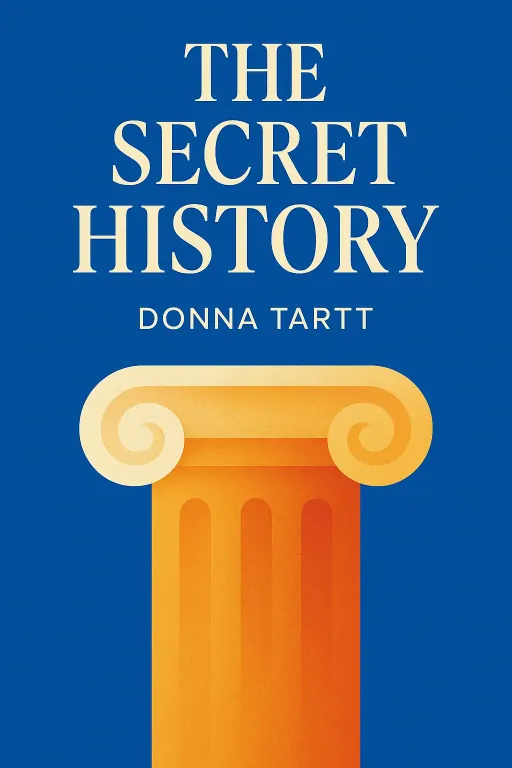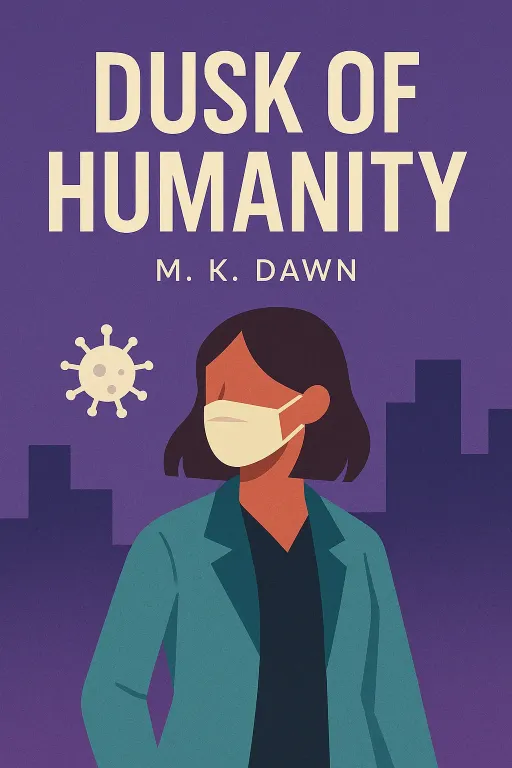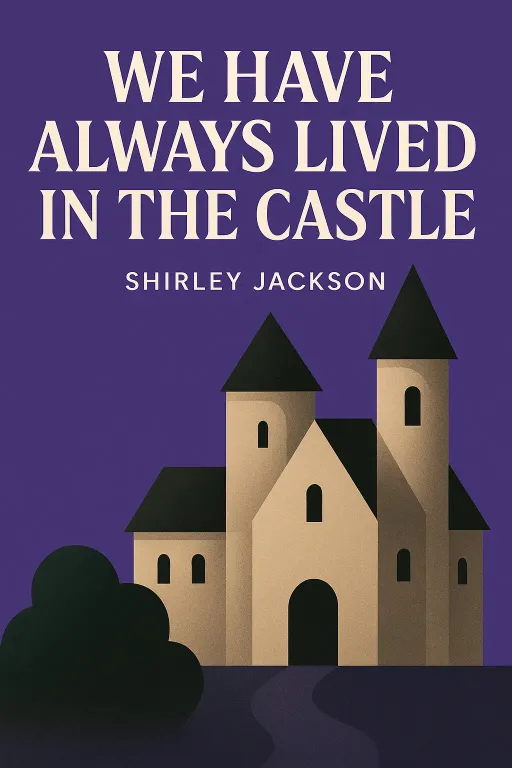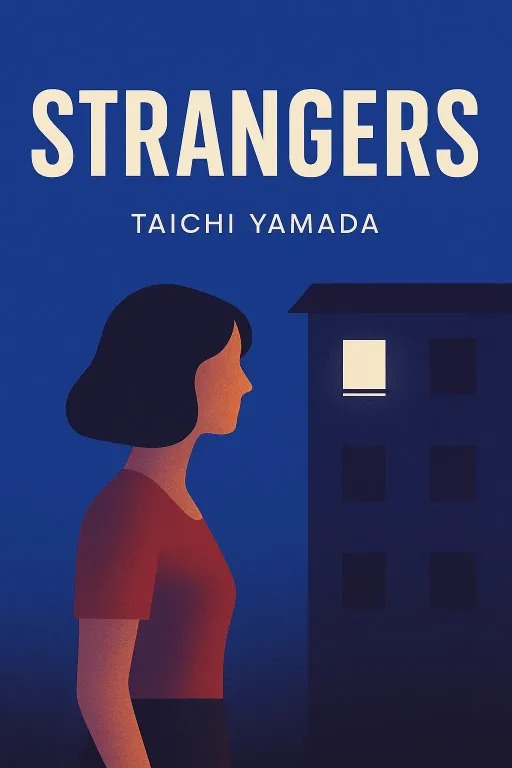
From Greek Class to Murder
13 minGolden Hook & Introduction
SECTION
Daniel: Alright, Sophia. The Secret History. Five words only. Go. Sophia: Okay. "Rich kids, Greek, things go wrong." How about you? Daniel: I'll go with: "Beauty, terror, and bad life choices." Sophia: That pretty much nails it. It’s a book that has this massive, almost fanatical cult following. I feel like it single-handedly launched the whole 'dark academia' aesthetic we see all over social media. Daniel: It absolutely did. And today we are diving deep into that very book, The Secret History by Donna Tartt. What's so fascinating is that Tartt began writing it while she was an undergraduate at Bennington College, essentially living a version of this life. She was part of this intense, almost mythical writing program, surrounded by other literary prodigies—she even used to trade chapters with Bret Easton Ellis. Sophia: No way! So this story is steeped in that real, claustrophobic, hyper-intellectual college world. Daniel: Exactly. It’s not just a fantasy; it’s born from a very specific, very real environment. And that authenticity is what makes its central premise so seductive, and ultimately, so terrifying. Sophia: Okay, so what is it about this world that's so seductive? Let's start there. What drew the narrator, Richard, into this circle in the first place? It seems like more than just wanting to join a club.
The Seduction of the Picturesque: Building an Insular World
SECTION
Daniel: It's everything to him. Richard Papen, our narrator, comes from a painfully dull, working-class background in California. He’s so ashamed of it that he invents a more glamorous past for himself. The book tells us he has what he calls a "fatal flaw": a morbid longing for the picturesque at all costs. He sees Hampden College, and specifically this elite group of Classics students, as his escape hatch from a life of mediocrity. Sophia: I think a lot of people can relate to that feeling. The desire to reinvent yourself, to find a life that feels more meaningful or beautiful than the one you were handed. It’s a very human impulse. Daniel: It is. And at the center of this picturesque world is their professor, Julian Morrow. He’s not just a teacher; he’s this charismatic, enigmatic, almost cult-like figure. He only takes a handful of students for his Greek tutorials, and they study in a secluded, beautiful building called the Lyceum, completely separate from the rest of the college. Sophia: So it’s exclusive. It’s a secret society, basically. Daniel: Precisely. And Richard becomes obsessed with getting in. The story of his admission is a perfect illustration of the stakes. To join Julian's class, he's told he has to drop all his other courses. He has to sever his ties with the rest of the university and commit his entire academic life to this one man and his five chosen students. Sophia: Whoa, hold on. That's a massive red flag. Dropping everything for one professor? That sounds less like an academic choice and more like indoctrination. Daniel: It does to us, looking from the outside. But for Richard, it’s the ultimate validation. It means he’s been chosen. He’s no longer the boring boy from California; he’s part of this inner sanctum. He’s finally living a life that feels like a story. The group—intellectual Henry, elegant Francis, the mysterious twins Charles and Camilla, and the boisterous Bunny—they become his entire world. Sophia: And this professor, Julian, he encourages this isolation, this elitism? Daniel: He cultivates it. He teaches them that they are a breed apart. He fills their heads with these grand, romantic ideas from the classics. One of the first things he tells them, and it becomes a kind of mantra for the book, is a quote he attributes to the Greeks: "Beauty is terror." Sophia: "Beauty is terror." What does that even mean? That beautiful things are scary? Daniel: It means that true, sublime beauty is overwhelming. It’s not just pretty; it’s powerful, it’s dangerous. It’s the kind of beauty that can shatter you, that makes you "quiver before it." He’s teaching them that the highest forms of experience lie beyond the rational, beyond the safe, in a realm of terror and ecstasy. Sophia: Okay, I see. He’s not just teaching them a language; he’s giving them a whole new, and very dangerous, worldview. He’s essentially giving them intellectual permission to cross moral lines in the pursuit of something "beautiful." Daniel: Exactly. And that idea, that 'Beauty is terror,' isn't just a classroom theory for them. They decide to put it into practice. This is where the picturesque fantasy begins to curdle into something truly horrifying.
From Theory to Transgression: The Point of No Return
SECTION
Sophia: That feels like a monumental leap. How do you go from discussing philosophy in a beautiful classroom to... well, to whatever comes next? It seems like there’s a missing step. Daniel: The missing step is hubris. Intellectual arrogance. Julian has convinced them that they can not only understand the ancient world but access it. Specifically, they become obsessed with the idea of a bacchanal—a Dionysian frenzy. Sophia: Right, you mentioned the Dionysian. What does that actually mean in practice? What were they trying to do, just have a wild party in the woods? Daniel: It's more than a party. They were trying to achieve what the Greeks called ekstasis—a state of being outside oneself. To lose their identities and touch the divine, or the primal, for just a moment. They tried everything: fasting, sleep deprivation, psychotropic plants. But nothing worked. Henry, the group's intellectual leader, comes to a chilling conclusion. He believes the reason it’s failing is because they lack "cultic purity." Sophia: Cultic purity? That sounds ominous. Daniel: It is. He decides that one member of the group is holding them back with his unserious, modern attitude. That person is Bunny. So, one night, they go to Francis’s remote country house and perform the ritual without him. And this time, it works. Sophia: What happens? What does it look like when it "works"? Daniel: They don't fully remember. Their memories are fragmented, nightmarish. Henry recalls it as glorious and terrifying—"torches, dizziness, singing. Wolves howling around us and a bull bellowing in the dark." He remembers swinging a stick at something large and indistinct. Camilla remembers sitting by a stream, her clothes perfectly white, but her hair completely soaked and matted with blood. Sophia: Oh my god. Blood? Daniel: Yes. When they come to their senses, they find the body of a local farmer. His head has been smashed in. In their ecstatic frenzy, they had stumbled upon him in the woods and, mistaking him for a mythical beast or perhaps just losing all control, they beat him to death. Sophia: Wow. So they black out and kill a man. And their first instinct isn't to call the police? Daniel: Their first instinct is self-preservation, driven by Henry's cold logic. He argues that as wealthy, outsider college students, they would never get a fair trial in rural Vermont. He says, in one of the book's most chilling lines, "I am sorry that it happened, but frankly I do not see how well either the taxpayers' interests or my own would be served by my spending sixty or seventy years in a Vermont jail." Sophia: That is an astonishing level of entitlement. This is a recurring criticism of the book, isn't it? That it’s about these incredibly privileged people who believe they are above the law and morality. Daniel: It's a central tension. Tartt doesn't necessarily endorse their view, but she presents it unflinchingly. They make a pact to hide the body and never speak of it again. They believe they’ve contained the secret. They’ve committed a terrible act, but their insular world is, for the moment, intact. Sophia: So they have this horrifying secret. But the prologue of the book tells us that's not even the murder the story is about. How does this first, secret murder lead to the second, more calculated one?
The Unraveling: The Psychological Cost of a Secret
SECTION
Daniel: Because one person wasn't there that night: Bunny. And Bunny, for all his faults, is not stupid. He starts noticing things—a strange newspaper article about a missing farmer, the group's weird behavior. He eventually pieces it together. And once he knows, he becomes an existential threat. Sophia: So he blackmails them? Daniel: Not in a straightforward way. That’s what makes it so psychologically complex. He doesn't ask for a lump sum of money. Instead, he uses the knowledge to torment them. He makes veiled jokes in public, he bleeds them dry financially with endless expensive lunches and trips he "forgets" his wallet for, and he becomes generally insufferable. He holds this immense power over them, and he’s too much of a fool to wield it safely. Sophia: That sounds even worse than blackmail. It’s a slow, constant torture. Daniel: Exactly. The group becomes trapped. They can't get rid of him, and they can't live with him. The paranoia and resentment build until Henry, again, makes a cold, logical decision: Bunny has to die. And this time, it won't be a crime of passion. It will be a carefully planned execution. Sophia: And this is where Richard, our narrator, becomes a full participant. Daniel: Yes. He's brought into the secret of the first murder and agrees to help with the second. The book details their plan to lure Bunny to a remote ravine and push him off a cliff, staging it as a hiking accident. The scene itself is agonizingly tense. They wait for him, he shows up, confronts them, and in a moment of terrifying quiet, Henry steps forward and pushes him. Sophia: And just like that, their problem is solved. Daniel: On the surface, yes. But the rest of the novel is about the aftermath. It’s a masterclass in psychological disintegration. They have to perform grief at his funeral, lie to his family, and deal with an FBI investigation. But the real punishment isn't the threat of getting caught. Sophia: What is it, then? Daniel: It’s being trapped with each other. The shared secret doesn't bond them; it corrodes them. Paranoia sets in. Charles descends into violent alcoholism. He and Camilla, the twins, become estranged. Francis is crippled by anxiety. Their beautiful, insular world becomes a prison, and they are each other's jailers. Sophia: And what about their mentor, Julian? The man who set them on this path with his talk of beauty and terror? Daniel: That’s one of the most devastating parts of the story. They manage to keep the secret from him for a long time. But when he finally learns the full, ugly truth—not from their confession, but by discovering an incriminating letter from Bunny—he doesn't help them. He doesn't offer guidance. He is simply disgusted. He looks at them with cold horror, packs his bags, and disappears forever. Their intellectual father abandons them completely. Sophia: Wow. So the very foundation of their world, the person who gave their lives meaning, rejects them utterly. The fallout is total. Daniel: It is. It culminates in a final, tragic confrontation where a drunk and abusive Charles confronts Henry with a gun. In the struggle, Richard is shot, and Henry, seeing the ruin he has created, turns the gun on himself. The group is completely shattered.
Synthesis & Takeaways
SECTION
Sophia: So after all this tragedy, all this moral decay, what's the big takeaway? Is it just a warning against studying the classics or being an intellectual snob? Daniel: I don't think it's that simple. For me, it’s a profound exploration of a very human desire—the desire to live a life of beauty, meaning, and transcendence. We all feel that pull away from the mundane. But Tartt shows, in the most dramatic way possible, that when that pursuit is detached from empathy, from basic human morality, it becomes a monstrous form of narcissism. Sophia: That’s a great way to put it. The "secret history" isn't just the murder. It's the ugly truth that their beautiful, aesthetic world was built on a foundation of rot from the very beginning. Daniel: Exactly. The real horror isn't the violence itself, but the intellectual and aesthetic justifications they build to allow it. They were so obsessed with living a great story that they forgot to be good people. Sophia: It really makes you think about the whole 'dark academia' aesthetic that's so popular online. It's all about the look—the tweed jackets, the old books, the moody libraries—but it rarely touches on the profound moral darkness the book is actually about. Daniel: It’s the picturesque without the terror. Sophia: Exactly. And you can't have one without the other, at least not in Tartt's world. We'd love to hear what our listeners think. Does the aesthetic miss the point of the story? Let us know your thoughts. Daniel: A question to ponder. Sophia: Indeed. Daniel: This is Aibrary, signing off.


